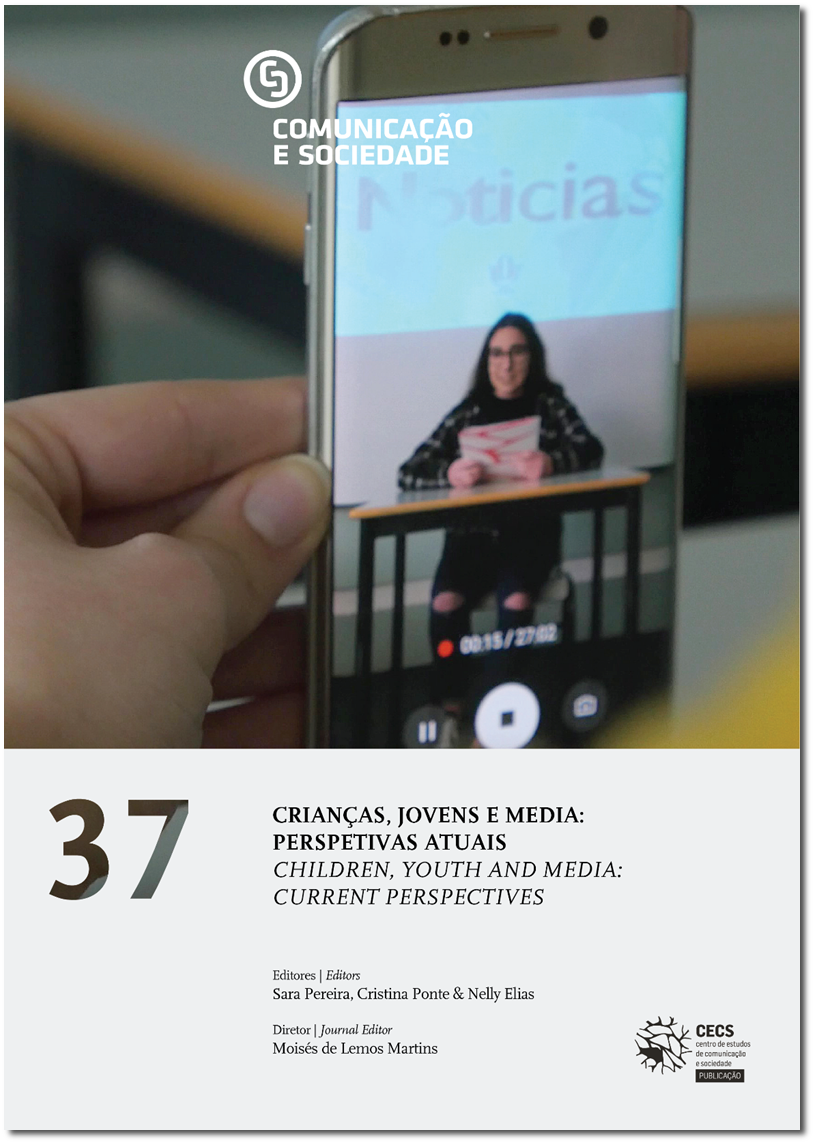Sociological analysis of Montenegrin teachers’ digital capital
DOI:
https://doi.org/10.17231/comsoc.37(2020).2397Keywords:
digital capital, digital competencies, media literacy, Montenegro, teachersAbstract
Starting with the concept of digital capital in social sciences, this article presents the key findings of the “Global Kids Online” nationally representative survey of primary and high school teachers’ digital skills and practices that was conducted in Montenegro with Unicef’s support in 2018. Digital capital, as any other form of capital within Bourdieu’s perspective, has a sociological validity only in correlation with other forms of capital – such as economic, cultural and social – in a limited context and according to a multi-dimensional approach which goes from a macro- to a micro-social perspective (Pandolfini, 2016). This article identifies and discusses three perspectives of digital capital – macro, meso-social and micro – and their material (technologies, digital services and school experiments with devices) and non-material resources (digital competencies). Analysis of data from the Montenegrin research relating to this perspective shows that the daily practice of using digital technology in classrooms seems to be marginal, even though most teachers have access to the internet in their schools. Currently the majority of teachers are using the internet at school mostly just for checking information online. Their digital competencies are not generally advanced: on average, social and operational skills are the most developed, while their creative skills are least developed. Therefore, to support the development of children’s media literacy through formal education, further investments towards the strengthening of teachers’ digital competencies need to be made and the research shows that the demand for digital pedagogy courses already exists among most teachers. In other words, the Montenegrin research points to the need to invest more in education and experimentation related to the meso- and micro-social perspectives of digital capital.Downloads
References
Bourdieu, P. (1986). The forms of capital. In J. Richardson (Ed.), Handbook of theory and research for the Sociology of Education (pp. 241-258). Nova Iorque: Greenwood.
Capogna, S., Cocozza, A. & Cianfriglia, L. (Eds.) (2016). Le sfide della scuola nell’era digitale. Una ricerca sociologica sulle competenze digitali dei docenti. Roma: Eurolink.
Carretero, S., Vuorikari, R. & Punie, Y. (2017). The digital competence framework for citizens (Digcomp 2.1) with eight proficiency levels and examples of use. Luxemburgo: Publications Office of the European Union
Cortoni, I. (no prelo). Le competenze digitali nella scuola. Un’indaginedell’osservatorio Mediamonitor minori della Sapienza. Roma: Carocci.
Cortoni, I. & Lo Presti, V. (2018). Digital literacy e capitale sociale. Una metodologia specifica per la valutazione delle competenze. Milão: FrancoAngeli.
Ferrari, A. (2013). Digital competence in practice: analysis of framework. Bruxelas: JRC European Commission.
Ferrari, L. (2017). Il digitale a scuola. Per una implementazione sostenibile. Milão: FrancoAngeli.
Giancola, O. & Viteritti, A. (2019). Le competenze nello spazio globale dell’educazione. Scuola Democratica, 1, 11-40.
Grizzle, A., Moore, P., Dezuanni, M., Asthana, S., Wilson, C., Banda, F. & Onumah, C. (2013). Media and information literacy. Policy and strategy. Paris: Unesco.
Landri, P. & Viteritti, A. (2016). Introduzione. Le masse mancanti in educazione. Scuola democratica, Learning for Democracy 1, 7-22.
Magaudda, P. (2014). Bourdieu in digitale. Capitale, distinzione e habitus all’epoca dei nuovi media. In De Feo, A. & Pitzalis M. (Eds.), Produzione, riproduzione e distinzione. Studiare il mondo sociale con (e dopo) Bourdieu (pp. 1326-1589). Nápoles: CUEC.
McDougall, J., Zezulkova, M., van Driel, B. & Sternadel, D. (2018). Teaching media literacy in Europe: evidence of effective school practices in primary and secondary education, analytical report. Luxemburgo: Publications Office of the European Union.
Nussbaum, M. (2010). Not for profit. Why the democracy needs the humanities. Princeton: Princeton University Press
OCDE. (2010). Inspired by technology, driven by pedagogy. A systematic approach to technology-based school innovations. Paris: OCDE.
Paino, M. & Renzulli, L. A. (2012). Digital dimension of cultural capital: the (in)visible advantages for students who exhibit computer skills. Sociology of Education, 86, 124-138.
Pandolfini, V. (2016). Exploring the impact of ICTs in Education: controversies and challenges. Italian Journal of Sociology of Education, 8(2), 28-53. https://doi.org/0.14658/pupj-ijse-2016-2-3
Pitzalis, M. (2016). The technological turn: policies of innovation, politics and mobilisation. Italian Journal of Sociology of Education, 8(2), 11-27.
Ragnedda, M. (2018) Conceptualizing digital capital. Telematics and Informatics, 35(8), 2366–2375.
Ragnedda, M., Ruiu, M. L. & Addeo F. (2019). Measuring digital capital: an empirical investigation. New media and Society, 22(5), 793-816. https://doi.org/10.1177/1461444819869604
Recomendação 2018/C 189/01, de 22 de maio, Comissão Europeia.
Redecker, C. & Punie, Y. (2017). European framework for the digital competence of educators: DigCompEdu. Luxemburgo: Publications Office of the European Union.
Selwyn, N. (2011). Schools and schooling in the digital age: a critical analysis. Londres: Routledge.
Unicef Montenegro. (2019). Teachers in Montenegro and the internet – survey. Retirado de https://www.unicef.org/montenegro/en/reports/teachers-montenegro-and-internet-survey
Vuorikari R., Punie Y., Carratero S. & Van den Brande, L. (2016). Digcomp 2.0. The digital competence framework for citizens. Update phase 1: the conceptual reference model. Luxemburgo: Publication Office of the European Union. https://doi.org/10.2791/11517
Downloads
Published
How to Cite
Issue
Section
License
Authors own the copyright, providing the journal with the right of first publication. The work is licensed under a Creative Commons Attribution 4.0 International License.











